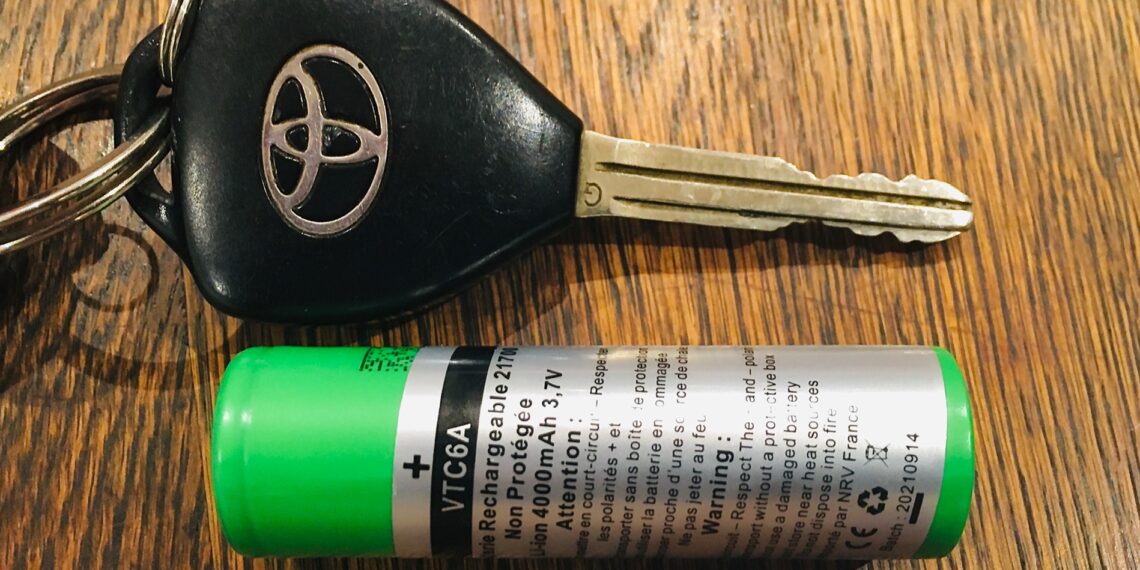Japanese giant’s announcement has caused a wave of hype across the world. But how excited should we get? asks Forbes Magazine
In September, car manufacturer Toyota published a battery technology roadmap, outlining their research focus and their goals for producing a diverse, all-electric fleet in the next decade.
This alone is not that surprising, says Laurie Winkless, writing for Forbes.com this week. In her article she says: “The electrification of the automotive sector has been underway for some time. But the announcement marked a notable pivot for the company, which until fairly recently, had been publicly, and aggressively, resisting the transition to battery electric vehicles (EVs), focusing instead on hybrids and vehicles powered by hydrogen fuel cells.”
The battery technology roadmap was straightforward with ambitions that all of the big vehicle manufacturers would be aiming for:
- Strategy includes three new liquid electrolyte battery technologies to achieve higher power, longer driving range, faster charging and lower cost
- Breakthrough in solid-state battery technology shifts the development focus to mass production
- Battery height reduction key to improvements in driving range
Toyota announced a new battery electric vehicle factory that will begin production of new models in 2026. Not only will these cars be designed and built differently, they will be powered by a range of new, advanced batteries.
Details of four next generation batteries have been revealed, demonstrating state-of-the-art advances in both liquid and solid electrolytes. Toyota has also previewed further progress with solid electrolyte battery technology.
Takero Kato, president of the new production facility, indicated at the Let’s Change the Future of Cars workshop that these next generation models will account for 1.7 million of the 3.5 million BEVs Toyota expects to sell globally by 2030. He also highlighted how a range of battery technologies will be key to appealing to a wider customer base.
“We will need various options for batteries, just as we have different types of engines. It is important to offer battery solutions compatible with a variety of models and customer needs,”he said.
“However, it was the mention of an unspecified “breakthrough in solid-state battery technology” that has caused it to shift its “development focus to mass production” that really got people talking,” says Winkless in her Forbes analysis.
Lithium-ion batteries power your smartphone and today’s electric cars and it is widely accepted that Elon Musk’s Tesla set the standard for the use of – and hugely increased production of – Li-ion batteries in electric cars, initially the 18650 battery and now the 21700 (see picture) connecting thousands in a power pack for each car.
Li-ion batteries can discharge their power quickly and reliably, they hold a lot of charge and power for their size and have transformed battery tech in the past decade replacing nickel-metal hydride (Ni-MH), which used to be the battery of choice for mobile phones, laptops AND the original Toyota Prius. Ni-MH batteries main disadvantage was they developed memory and were slower to charge.
A slightly different make-up gives you a Lithium-iron-phosphate (or LFP) battery. “Increasingly favoured for electric buses,” writes Winkless. ” All have one thing in common. They rely on a liquid electrolyte, which facilitates the flow of charged particles (ions) between the battery’s two electrodes, generating an electric current.
“Solid-state batteries replace this liquid with another solid.”
Solid state batteries have been around for decades and they are used widely in small devices. But if they while they don’t have the power of li-ion, they are more stable, safer and can withstand low and high temperatures, making them very useful in extreme conditions. “Their high resistance to heat also means they can be safely charged more quickly than lithium-ion batteries,” says Winkless. ” And solid-state battery materials are likely to have higher energy densities too, which means that for the same weight, you can store more power.”
Winkless pieces together the Toyota puzzle and speculates about its solid-state battery ambitions. According to Toyota’s press announcement, they’ve also been turning by-products into various battery-related materials since 2001, and the two companies have been collaborating on materials development since 2013. This latest agreement is firmly focused on commercialization and mass production – specifically, of solid-state batteries that use sulfide electrolytes.
Read the full report by Laurie Winkless at Forbes.com HERE
Full details of Toyota’s Battery Technology Roadmap HERE
Return to Decarbonisation News Index HERE





